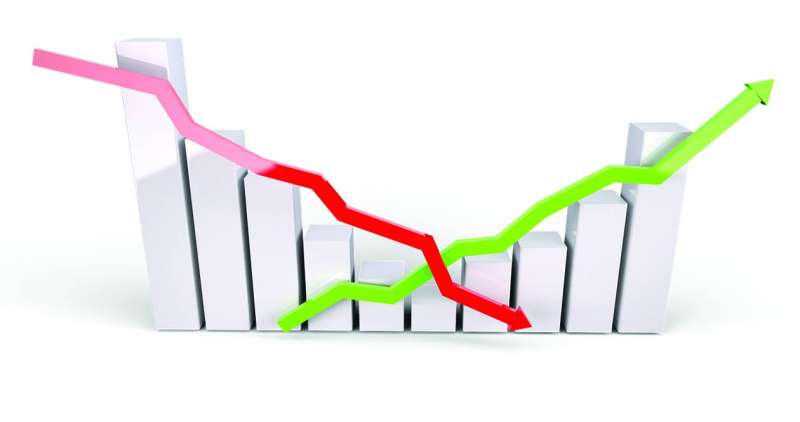While the seventh report of the Parliamentary Finance Committee, which studies the issue of “rising prices and the continuing wave of inflation,” included 11 recommendations to control prices and confront inflation, it stressed that the measures taken by the relevant government agencies are still insufficient in this direction, and that there are important issues related to the phenomenon of high prices that must be addressed and consider.
The report, which was completed before the opening session of the second session, a copy of which has been obtained by Al-Rai daily, concluded 11 recommendations can confront inflation, the first of which was developing radical solutions to address the housing issue.
The report stressed the need to confront the noticeable inflation in real estate prices, indicating that the data received from the concerned authorities revealed that the consumer in Kuwait spends the largest percentage of his total spending on housing services, at about 33.2 percent.
The report emphasized the importance of making efforts to address the large gap between demand and supply for housing, to reduce exaggerated real estate prices, by working to free up more residential land, increasing the role of the private sector in completing housing projects, and reconsidering the value of fees imposed by Law 8/ 2008, regarding the exploitation of vouchers and houses allocated for private housing purposes.
This is in addition to legalizing the rental of private housing, in a way that prevents speculation in the residential real estate market, and finding sustainable alternatives to the current housing system in order to ensure everyone’s access to housing.
The committee recommended the importance of legislative amendment to the provisions of Law 10/1979 regarding the supervision of trade in goods, services, and craft works, and determining the prices of some of them and other related laws, to enhance the role of the Ministry of Commerce and Industry in confronting the phenomenon of high prices and inflation rates and taking sufficient and deterrent measures for all who seek to exploit consumers, indicating that the committee is currently studying proposals for laws related to this issue, to reach appropriate legislative amendments to the current relevant laws in a way that contributes to controlling the prices of goods and services and achieving relative stability in inflation rates, noting that the government made clear in its meeting with the committee that it In the process of submitting a draft law amending the provisions of the aforementioned law.
Among the recommendations presented by the committee includes financial control (fiscal policy) by adopting financial and economic reforms, to diversify sources of income, address deficiencies in the state’s general budget, while reducing the general budget deficit to calm aggregate demand and inflation, and investing in infrastructure, medical care, and education.
The committee stressed the need to tighten supervision over markets, by considering other complementary measures to increase the effectiveness of market supervision, coordination between all parties concerned with the price file, and concerted efforts towards confronting inflation and rising prices, and achieving relative stability in commodity prices.
The sources stressed the importance of enhancing competitiveness, by further activating the role of the Competition Protection Agency, benefiting from the experiences of similar agencies in other countries, and approving effective legislation and policies for competition, consumer protection, improving the business environment, and attracting investments.
The report touched on other recommendations, including enhancing food supplies, diversifying import sources, facilitating border control procedures, which would enhance long-term food security, supporting and encouraging entrepreneurial entrepreneurs to provide goods at competitive prices by providing incentives such as exemptions from government fees and others, and supporting the efforts of the Central Administration of Statistics to develop statistical work and work to accelerate the pace of issuing lagging economic indicators and statistics.
The committee also stressed the importance of optimally exploiting the rise in oil prices for any period, by establishing investment projects that will bring huge non-oil revenues to the state, which would develop local human capital, encourage innovation and invention, and activate the policies of the development plan and implement them through a package of development initiatives that include all groups. The main goods in the economic sectors in the country, as well as activating laws that would affect the rise in prices, such as Law 5/2008, regarding the establishment of companies to develop and implement public warehouses and border crossings.
Recommendations
1 – Radical solutions to address the housing issue
2 – Amending the law on supervision of trade in goods and services
3 – Controlling financial policy in the country
4 – Supervising markets
5 – Enhancing competitiveness and activating the countries of the competition protection agency
6 – Strengthening food supplies and diversifying import sources
7 – Supporting Business owners who take the initiative to provide goods at competitive prices
8 – Accelerate the pace of issuing lagging economic indicators and statistics
9 – Optimal exploitation of rising oil prices
10 – Activating and implementing development plan policies
11 – Activating laws that would affect the rise in prices

